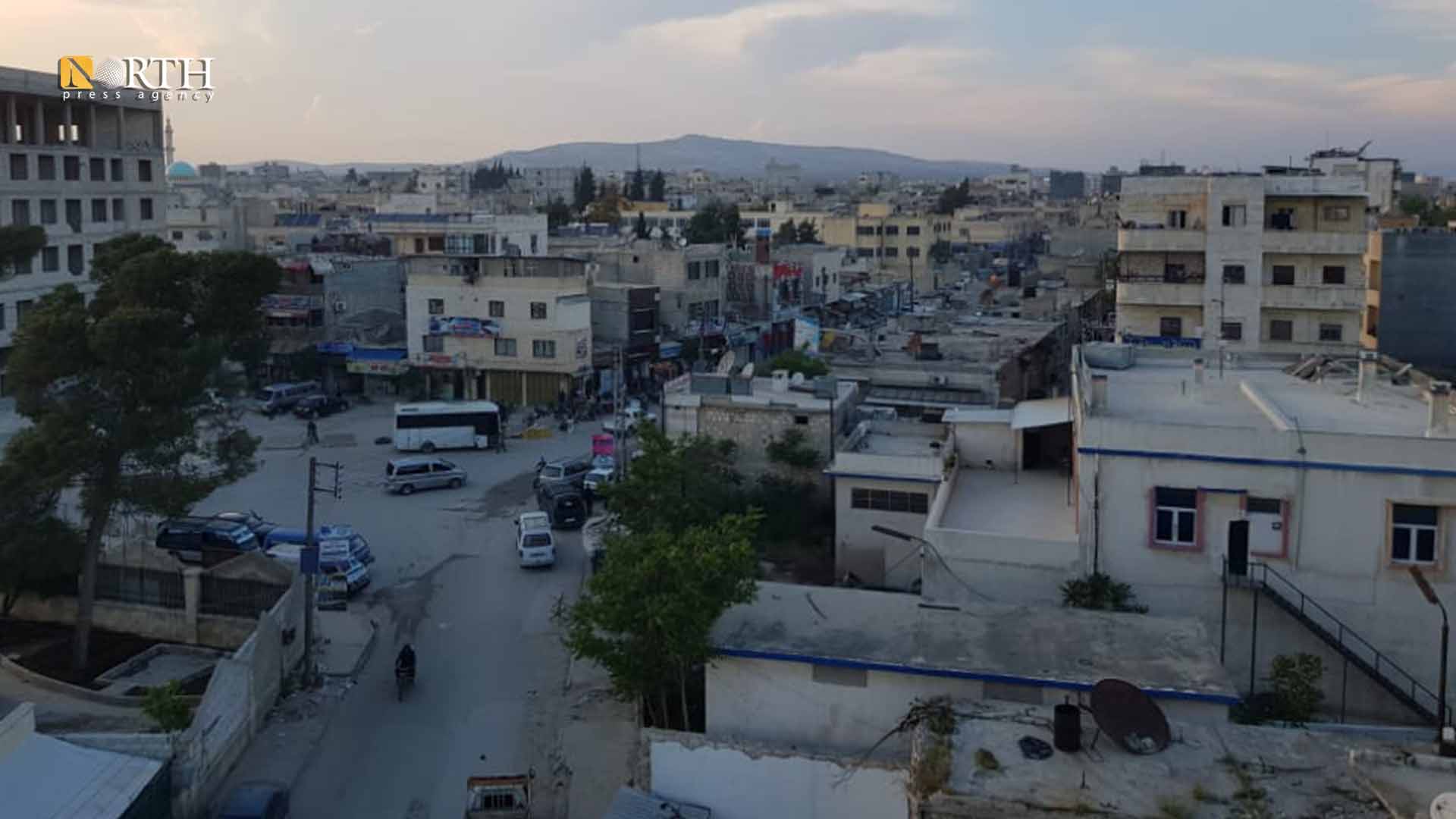AZAZ, Syria (North Press) – Displaced women in the countryside of Azaz, north of Aleppo, northern Syria, suffer from family crises and personal losses during the war years, and believe that the restrictions that society imposes on women prevents the finding of solutions to their problems.
These women believe that their lives would be better if they were given opportunities to prove themselves in educational attainment and fields of work.
Closed doors
25-year-old Nihal Issa, who was displaced from the western countryside of Aleppo to the Azaz area, said that she is confined to her tent.
“I became a widow after my husband was killed in an airstrike in 2018, and I moved with my three children and my family to the camp,” Issa said.
All of Issa’s attempts to persuade her family to let her sit her high school exams were unsuccessful. “The widow, from their point of view, must only care for her children,” she explains.
After insistence, the alternative was to go to the camp’s mosque to learn the intonation of the Qur’an, so that she, in turn, would later teach the children to read the short surahs (chapters).
“This is how I live; confined to my tent, raising my children, and going to the mosque,” she said.
About 1,500 IDPs live in the countryside of Azaz’s camps on the Syrian-Turkish border.
Imposed decisions
22-year-old Tahani Pare, an IDP from Aleppo to Azaz’s northern countryside, said that she does not believe that she will be able to resume her education after she was forced to marry young, have children, and was divorced within four years.
She told North Press that it began with her family’s traditions when she was fifteen, as it was not possible to reject the marriage that made her responsible for the family and the care of two children she gave birth to within four years.
“I was 15 years old when my family forced me to marry without even asking my opinion, and now I am a divorced mother with two children,” she told North Press.
“My divorce was the same as my marriage: they forced me into marriage and divorce, they deprived me of my son and I kept my daughter with me. I had no choice in all that process according to my society’s norms,” Pare added.
Tahini now has a job to support herself and her child in addition to her family, because she was encouraged by some friends to resume her studies.
“I will keep improving myself. I won’t let the customs affect my life and my daughter’s, like before,” she said.
Duties without rights
Other women in the Azaz camps were unable to reduce the power of social injustice, considering the success of Tahani and her few peers as an exception rather than a rule. Negative social judgments have increased after their surroundings labeled them as divorced or widowed, and they had to stay locked inside a room or tent.
Amal Abdullah, a civil activist in the city of Azaz, explains the fate of these women by saying that society in general is a patriarchal society, which links the fate of a woman to the decisions of her husband or father.
While traditions prevent a woman from practicing a job, no one in her surroundings pays attention to the amount of tasks entrusted to her. Some women, in addition to their husbands and children, take care of the affairs of their husband’s family as well.
The activist added that the activities of some organizations operating in the region contribute to providing women with better educational and professional opportunities, in addition to limiting some vacancies to females has provided job opportunities for some.
Some women’s lack of education plays an important role in their inability to keep up with men in job opportunities that require educational capabilities, so that they are only allowed to sewing and agricultural work.

